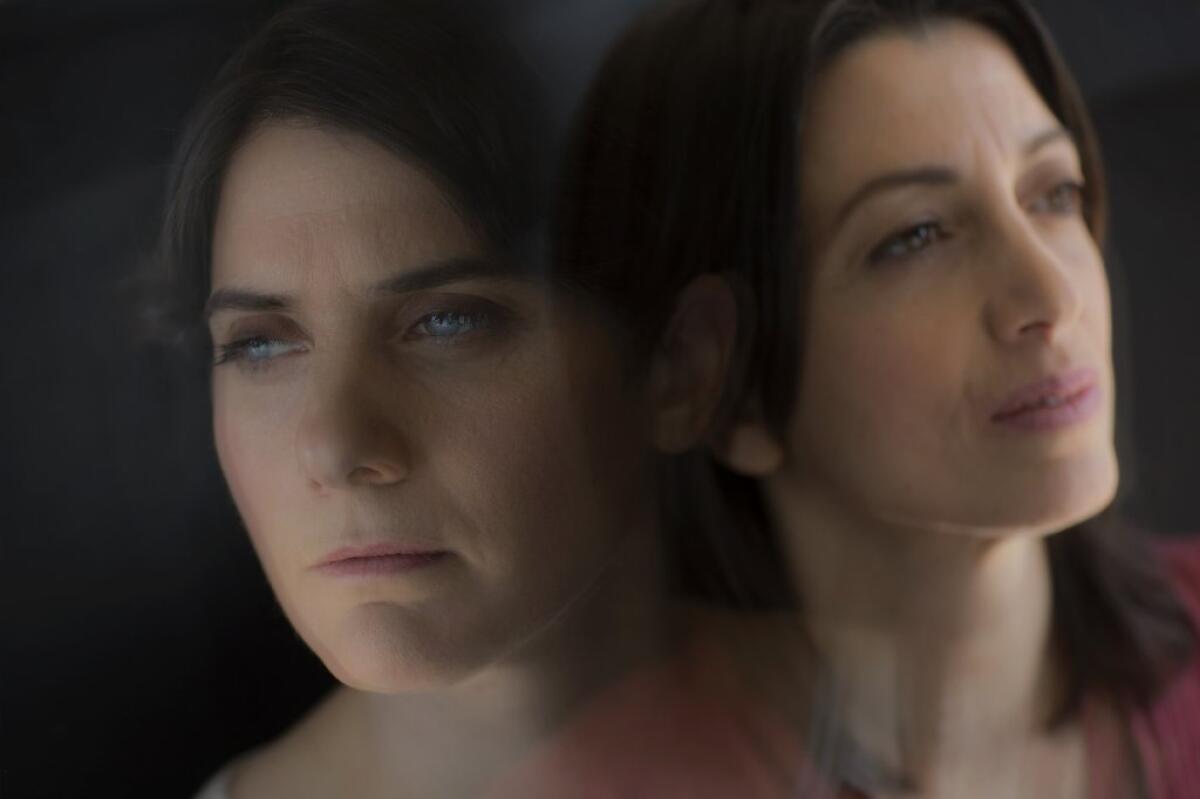For the ‘Making a Murderer’ team, it’s all about examining truth and justice

- Share via
In 2005, Moira Demos and Laura Ricciardi read a New York Times article about a Wisconsin man named Steven Avery, who had spent 18 years in prison for sexual assault, was exonerated in 2003 through DNA evidence, then, three years later, was arrested in connection with the slaying of photographer Teresa Halbach. The two spent the next 10 years collecting news reports, live courtroom feeds, police interrogation footage and jailhouse phone recordings, poring over legal documents and talking to lawyers and family members for a narration-less 10-part Netflix documentary series, “Making a Murderer.”
When they started, they were still graduate film students, a bare-bones writer-director-producer team who embedded themselves in Manitowoc, Wis., for 18 months. “We were very scrappy,” Ricciardi says during a recent interview in Los Angeles. “For the most part, our crew was just us. Sometimes we’d balloon to four people.”
Ricciardi, a lawyer before moving into film, handled the legal research and conducting interviews, while Demos, who’d been an electrician for film and TV, was responsible for almost everything else, including shooting vérité-style on a borrowed camera -- shakier than usual because the budget didn’t allow for a harness -- and controlling the switch box between the two courtroom cameras for the reporter’s pool.
Since premiering late last year, “Making a Murderer’s” zeitgeist-y popularity has been attributed to the true-crime craze sparked by HBO’s “The Jinx” and the podcast “Serial.” It could also be Demos’ and Ricciardi’s old-school, immersive approach -- teasing out a tale of mystery, legal procedure and questionable justice -- that gives “Murderer” a hypnotic pull all its own. There’s been talk of a second season but as yet nothing has been announced (“We’re open to it,” Demos says).
When did you realize that people were talking about nothing else?
Moira Demos: It was kind of gradual.
Laura Ricciardi: By early January, we started to get a sense that it was resonating with people all over the place – different age groups. Later we started hearing that celebrities were tweeting about the show. Alec Baldwin. Ricky Gervais. Mia Farrow. We’d think, “Really?”
“Making a Murderer” spawned podcasts, speaking tours and endless dinner table discussions.
Ricciardi: The response to the series has taken on a life of its own. But what we’re really taking on in the series is the role of truth and justice in the American criminal justice system. If there’s ambiguity – which we believe there is – about who killed Teresa Halbach, then the question is, what do you do with that ambiguity? We were trying to show the experience of the accused in the criminal justice system. Do we really give any weight to individual rights?
What we’re really taking on in the series is the role of truth and justice in the American criminal justice system.
— Laura Ricciardi
What’s your response to Avery’s ex-fiancee Jodi Stachowski alleging that she lied to you two?
Demos: You see her in the series as ... vulnerable, under a lot of pressure from the state. I don’t expect that any of those dynamics have changed. This is nine years later. This is very high stakes for people like [former Calumet County prosecutor] Ken Kratz or the Manitowoc County Sheriff’s department, who can still reach out to Jodi. Who knows why she’s saying those things?
And what of Kratz’s allegations that the series left out key evidence?
Ricciardi: There were over 900 exhibits in the trial. We didn’t include all of them. We weren’t putting on a trial. It’s a 30-year story of Steven Avery starting at one end of the criminal justice system and ending up in another. We made the best choices we could. They didn’t change the meaning of anything.
What’s your current relationship to Steven Avery?
Demos: We’re still in touch with Steven. I think our role as someone to listen to him, to give him a voice, was very clear all along. If anything, that’s the same now. But now he has more support than ever -- people writing him letters, more members of his family visiting him.
He also has a new attorney, correct?
Ricciardi: Steven hadn’t been represented by counsel since 2011. He was representing himself for a number of years before the series came out. Now he has a new lawyer, Kathleen Zellner, who has a record of overturning wrongful convictions. He’s feeling very good about that. Steven is very limited and not well educated. To think of him going to the law library and trying to prepare his own motions, do his own legal research. Go from that to Kathleen Zellner? It’s a big leap.
MORE:
A follow-up season of ‘Making a Murderer’? ‘We are ready,’ say its filmmakers
10 true-crime tales to tide you over until the ‘Making a Murderer’ book comes out
Netflix’s ‘Making a Murderer’ attorneys still making their case for justice
calendar@latimes.com
More to Read
From the Oscars to the Emmys.
Get the Envelope newsletter for exclusive awards season coverage, behind-the-scenes stories from the Envelope podcast and columnist Glenn Whipp’s must-read analysis.
You may occasionally receive promotional content from the Los Angeles Times.










